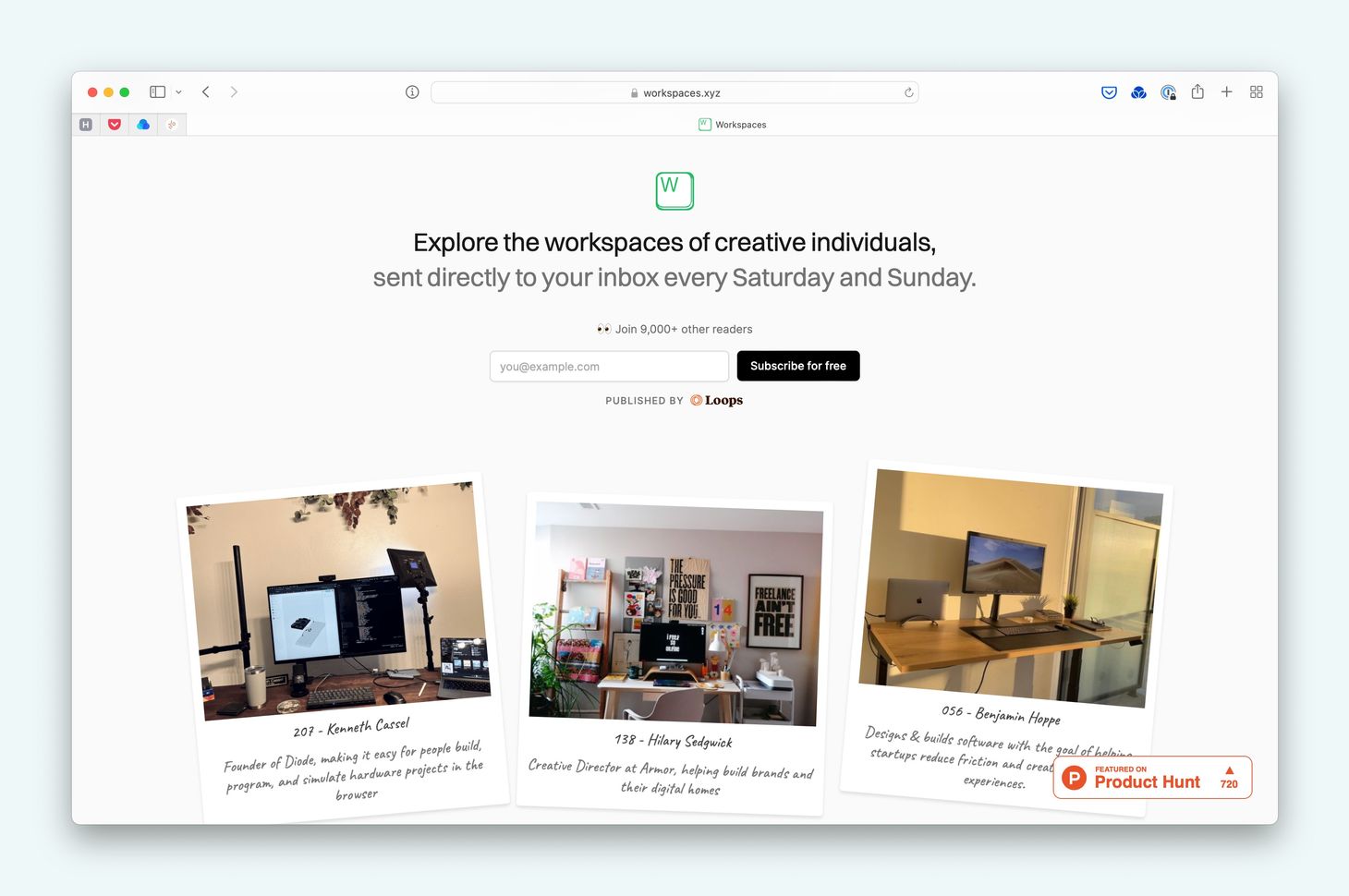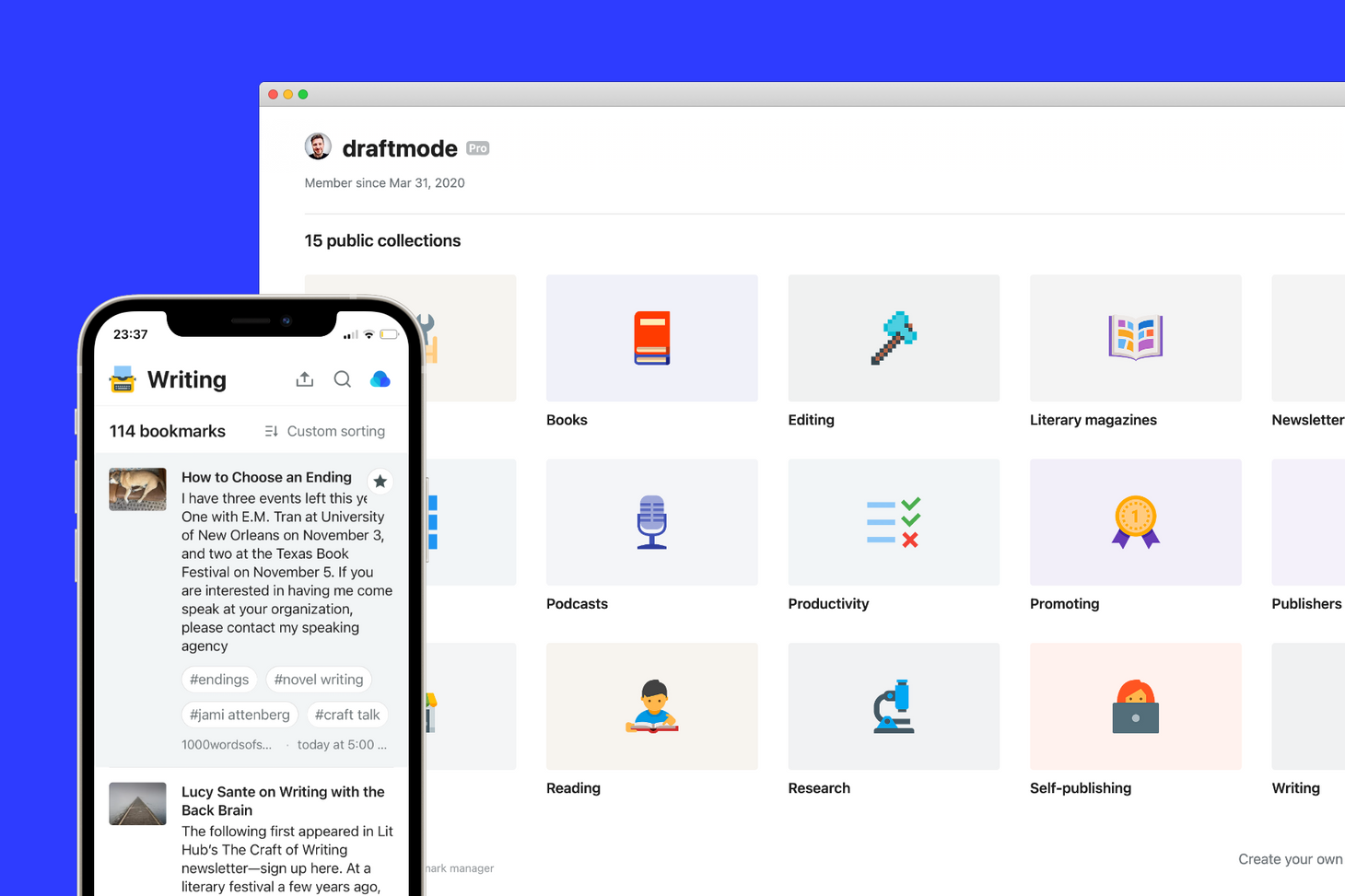Say hello to Unslush on Substack
Exciting changes to my humble newsletter


Oh hello there and a very warm welcome to Unslush, which is the exciting new name for my newsletter, which happens to be published on a new platform called Substack.
I first mentioned and linked to Substack in April and have kept my eye on it since. Those of you who have been reading this newsletter for a while will know that I have a keen interest in subscriptions as a way for authors and publishers to build a sustainable career and business.
Substack makes it really easy to add paid subscriptions to your newsletter. Even better, those emails get turned into a very lovely blog and searchable archive. And perhaps even better than that, you can start your own podcast on Substack too.
I suspect you have questions. As such, I shall now adopt an FAQ-style technique used the world over by people who are unable to adequately explain themselves succinctly.
Remember, you’re the one asking the questions.
Are you starting paid subscriptions?
Nope – I am not adding paid subscriptions to the newsletter.
After some spring cleaning and as of this moment, there are exactly 465 of you who read these emails with a healthy open rate of 50–60%. I love you all terribly, but that’s not enough people for me to start paid subscriptions.
It may be something I try in the future if more people sign up to and enjoy the newsletter. I really do think that subscriptions and memberships are one of few viable ways for midlist authors to make a living. But not for me right now.
What the heck is changing then?
What I like most about Substack is that it effectively adds a blog and podcast to an email newsletter. I can also create ‘threads’, where I pose a question and invite you all to have a very important and intelligent conversation with each other in response.
All this used to happen on my website. I spent a few years building up a modest audience for my blog, which got obliterated when a) Google Reader got pulled, and b) I accidentally pressed the wrong button in Feedburner. Because I am an idiot.
Similarly, the Write for Your Life podcast used to get a respectable 4000+ downloads per episode. We stopped recording the show, but I always assumed it would be there if we wanted to go back to it or make some sort of special announcement.
And then the network it was hosted on removed it from existence with no warning. I’ve got the files and the original feed, but those subscribers are completely lost to the podcasting wind. Pretty annoying.
So what is Unslush?
For the most part, it’s the same newsletter some of you have been getting for years. Every week – and I will try to keep to that schedule – I put together a collection of links to writing and publishing-related articles, apps and other handy things I find on the internet.
Earlier this year, I asked you what you wanted from the newsletter. Those curated links got the most votes, but many of you said you’d like me to talk about my writing process more, as well as publish the occasional piece of short fiction. I’d like to share those things with you.
And so, because Substack turns my emails into blog posts on a very simple but attractive website, Unslush will also be my blog. When I write longer pieces, I will publish them as part of this newsletter, and they will appear on the website version too. Same goes for any future podcast.
It feels a little silly writing this next bit, but another piece of feedback I get a lot is that people are interested in – ahem – me. Before the internet gained a slightly stinky whiff of unkindness, I used to be much more open, especially about my approach to writing.
Truth is it’s been a long time since I’ve really felt like an author. I’m a dad mostly and a freelance writer who has clients and invoices and too many Slack groups. It is ridiculous, but I think to feel like an author again, I have to make myself accountable to someone. I need to let people in.
And so while Unslush is still the same old newsletter at heart, it’s also a bit of a rebrand from me. I am going to try and share more of my process and journey.
Seriously – what are you actually sending?
Okay! So this is my current roadmap for turning my humble newsletter into something a little more substantial.
(It’s important to remember that we are having baby number four in just a few short weeks, so you won’t see anything especially new and exciting until the new year.)
- From now: Weekly emails packed with links to and commentary on the best writing articles, apps and nonsense I can find.
- From February: Longer non-fiction pieces about the writing process, books, publishing and things I recommend.
- From March: An Unslush podcast recorded solo from my writing shed – short episodes, sometimes helpful, much silliness.
- From Spring: An Unslush book club – we choose a book, read a book, then discuss it using one of the threads described above.
Of course, all of this is subject to change and I welcome your thoughts and feedback.
At some point, emails from me may become more frequent. If that’s annoying, you can always find the unsubscribe link at the end of each newsletter.
Shouldn’t you be writing your second novel?
Yep. Yes. Almost definitely. But I can tell you that I’ve tried not doing other projects like this before and it hasn’t helped me write any faster or better. In fact it’s seemed to make things worse.
Having children. Running a freelance business. Living life. As described above, this has all made me feel disconnected from the world of fiction and publishing – painfully so. Writing this newsletter helps me feel connected. To it. To you.
What about The Daily Unslush?
How did you even know about that?
Basically, I have found a way to easily add the links I share in this newsletter, plus a load of other stuff that is useful but not shared in the newsletter, to a very attractive Airtable database.
That means I am effectively creating a directory of fantastic resources for writers, all tagged and easy to search. As I pretty much add new stuff to the directory every day, I’m calling it The Daily Unslush.
But where can you find it? Another good question.
Substack provides a very direct and simple homepage for the newsletter, which is at unslush.substack.com. But because I think people will also naturally head to unslush.com, that’s where you will find The Daily Unslush.
What does Unslush even mean?
You’ve heard of the ‘slush pile’ right? The stack of manuscripts that literary agents have to wade through to find the gems that may or may not go on to get published. My work has been in many slush piles.
Unslush is about escaping the slush pile. It’s about searching for and finding the good stuff. It’s also about understanding your writing, learning about the publishing industry and being honest about what it takes to get lucky.
And perhaps most importantly, it is one word, seven letters, and had an available domain name and Twitter account. Hey. I don’t make the rules.
What can we do to help?
Glad you asked – finally. The answer is share the newsletter.
Tell your writer pals in person. Mention it on Facebook, Twitter or wherever the hell you like to spend your time. If you like it, share it.
Also – get in touch! If you have a writing or publishing question you’d like my thoughts on, let me know and I’ll respond either by email or even publicly in the newsletter, with your permission. Honestly, there’s nothing warms my cockles more than when people who read the newsletter contact me to say hello or share good news. So please do that.
Finally, and especially for this first newsletter on Substack, see that little heart icon at the bottom thereq (you might have to scroll)? Please illustrate any appreciation you have by giving that heart a click or a tap.
Substack has a newsletter leaderboard. I’ve no idea how many hearts we need to get on there, but wouldn’t that artificial token of excellence be just a delight to achieve? Don’t laugh. It would make me happy. And that’s what’s important.
Can we just get on to the links now?
Of course. Thanks for reading my claptrap. There is loads of good stuff this week in the links below. Go make a sandwich, put the kettle on and enjoy the next 20 minutes of your one wild and precious life.
Links of the week
Every issue I collect and share the best advice, apps and other shenanigans that I find on my internet travels. If you like these, you’ll like The Daily Unslush too.

From Ideas To Action: How To Turn Post-it Notes Into Trello Cards
Though I didn’t have much of a plan when I began writing A is for Angelica, after a while it became clear I needed to keep track of the plot. So I turned to my trusty Post It notes to log word counts, chapters and the overall timeline of the novel. Trello is a fantastic service that I use every day and is often described as being based around digital Post It notes. Exciting news time: there is now an app that makes it easy to digitise those actual real-life Post Its and get them into Trello. Hooray!
Do you like listening to podcasts? Do you have a podcast? Do you want to start a podcast in the future? This is a handy list of podcasts that are about podcasts, which you might find useful if you answered yes to any of the podcast-related questions above. Here’s that list of podcasts about writing I sent you previously.
Don’t play the creative lottery
There is lots to like about Leila Johnston’s recent post as part of the Hack Circus Masterclass series. This bit in particular resonated.
Sharing also helps you to work out who you are. Consciously or otherwise, you’ll collect a fresh perspective on your work, and therefore yourself, every time you put it in front of someone. We make, we share, we work out what we like, which bit of us work best with others, and eventually what we’d like to do more of.
If you’ve read Austin Kleon’s Show Your Work then the idea of constantly making and sharing to figure things out will ring familiar. I know that I have failed miserably to do that over the last few years and it’s something I hope to change in the coming months.
Talking of writing-related newsletters on Substack. Here’s a newish publication from Harry Marks, who remains the one and only person to ever edit an edition of the very newsletter you’re reading. It’s really good. This latest issue includes some excellent tools for tackling Nanowrimo.
Top 5 Goodreads Secrets for Authors
Now owned by Amazon, Goodreads has long been a pretty big deal and another social network for authors to traverse. I had a pretty rubbish experience on there when someone wrote a bizarrely personal not-really-a-review review of my book. But I know when book two finally appears, I’ll need to refer back to these handy tips from the #AmWriting podcast duo.
Read-o-Meter | Estimate the reading time.
I hosted the annual Novel Slam as part of Sheffield’s ace Off The Shelf literary festival last week. It’s always a fun evening. The contestants have just 60 seconds to pitch their novel. If they go through, they get to read three minutes from their manuscript. Ever needed to work out how long your writing will take to read? This tool does that.
Booker Prize 2019 – What the hell happened?
Have you been keeping track of this year’s Booker Prize announcement? The judges broke the rules and gave it to two books: Margaret Atwood’s The Testaments and Girl, Woman, Other by Bernadine Evaristo, who became the first black woman to win the award. At first I thought it was all a bit weird but, you know… whatever. But the more I thought about it, the more it seemed like such a silly thing to do. All the attention on the process and the judges themselves and away from the books.
And then I read this piece by Sam Jordison, founder of Galley Beggar Press, which published Lucy Ellman’s Ducks, Newburyport, one of the four books on the shortlist of six that did not win the Booker Prize. Did you know publishers that have a novel on the Booker shortlist have to pay £5000 for the privilege? Me neither! Grab a coffee and have a read. It sums up why the whole two-winner thing just feels a bit off.
The Stories We Tell by Bernadine Evaristo
If reading about the Booker Prize controversy makes you feel mad, sad or bemused, you should follow it with this gorgeous piece on creativity by Evaristo herself.
So much I could quote, but I went for this:
Most of my undergraduates don’t have printers and many of them refuse to use the available ones in the university library. I implore them to do otherwise. Sometimes they write on their phones and email it to me as homework without revision. I can tell. Seriously. Computer screens of all sizes are very deceptive. The font on the screen looks glossy, professional, finished. However, once it’s printed up, its failings become evident.
I’ve tried writing fiction by hand and honestly, my handwriting is terrible and it just doesn’t work for me. However, I always edit away from the screen. Write with a computer. Edit on paper. And kids – never do your homework on a phone.
Intellectual Property: The Big Picture for Authors
There is some really good advice in this blog post by Ethan Ellenberg writing on Jane Friedman’s website. While a good literary agent will help you navigate the rocky waters of book contracts and rights issues, it’s good to at least the know the basics yourself. And if you self-publish – well, you ought to become an expert pretty sharpish.
Tweets of the week
I know that tweets are but tiny drops of nonsense in a world full of codswallop. But some of them are quite good. You can follow both @iainbroome and @unslush on Twitter if you want.
First time reader?
If you are new to me and this newsletter, please feel free to join us and subscribe to get future correspondence right in your inbox. You can read a short bio on my website, where you can also find out more about my debut novel.
Join 1600+ super subscribers
I send two regular newsletters. Draft Mode (biweekly) is about the writing process, writing resources, creativity and being an author. Minifictions (monthly) features five original pieces of flash fiction.
Sign up once. Choose your newsletters.
Subscribe now



